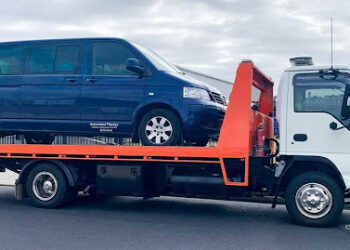Not all fires are created equal. A fire that starts in a kitchen is going to be very different from a fire in a chemical factory. Not only do they come from different sources and use different flammable material, but they require different types of extinguishers to fight as well.
The sources of ignition and fuel for these different types of fires and their extinguishers are provided in fire awareness training. It gives critical knowledge to regular workers as well as fire wardens about what to do in case of a fire, and how to act.
In this content piece, we will look at the various types of fire extinguishers as well as the classes of fire they are used upon.
The Types of Fires
Depending on your type of work and country, you could be dealing with four to six different types of fires. In this blog, we will look at the classes of fires according to the US standard put forward by the National Fire Protection Association (NFPA). These are:
- Class A fires are for ordinary combustibles such as wood, paper, and cloth. These fires are typically extinguished using water.
- Class B fires are categorized for flammable liquids, gases, and greases. These fires are typically extinguished using foam or dry chemical extinguishers.
- Class C fires involve electrical equipment. These fires are typically extinguished using dry chemical extinguishers.
- Class D fires involve combustible metals such as magnesium, titanium, and potassium. These fires are typically extinguished using special dry powder extinguishers.
- Additionally, there is a Class K which involve kitchen fires and is typically extinguished using wet chemical extinguishers.
Of course, since there are types of fires, the fire extinguishers used to fight them are also classified into these categories.
The Types of Fire Extinguishers
Each type of fire extinguisher will have its class rating to determine which one it is supposed to be used for. While fire extinguishers are also provided a number rating to determine how effective they are in extinguishing a fire, the focus here will be on the class letter and other categories.
There are also five types of fire extinguishers based on the material or agent used to fight the fire. These are:
Water Extinguishers
These are denoted by a red label. They mainly contain water, as well as additional additives. These can be water spray or mist-type extinguishers, each designed with specific use-cases. A water mist extinguisher, for example, is used to preserve the material as much as possible, such as a museum piece.
Foam Extinguishers
These are denoted by a cream label. These spray foam on the fire, settling on the surface and cutting off the fire from any oxygen from the liquid it is burning on.
Carbon di-oxide Extinguishers
These are denoted by a black label. The denser CO2 pushes out the oxygen from the fire, effectively displacing it but also cooling the fuel source.
Dry Powder Extinguishers
These are denoted by a blue label.They contain small, powder-like substances to coat the surface of the material and interrupt any reaction to the fire, helping to put it out.
Wet Chemical Extinguishers
These are denoted by a yellow label. These are used over Class K fires, forming a thick blanket over the material to effectively choke the flames from any oxygen supply.
Which Classes are Different Extinguishers Effective For?
These different types are effective on one or more classes of fire, but are ideally used only for their specific type they are rated for.
- Class A Fires
These can be extinguished with every type of extinguisher except for carbon di-oxide extinguishers.
- Class B Fires
These should not be extinguished by water or wet chemical extinguishers.
- Class C Fires
For electrical fires, only powder and carbon di-oxide extinguishers can be used, with some caveats.
- Class D Fires
Combustible metal fires should only be extinguished with dry powder fire extinguishers.
- Class K Fires
Wet chemical extinguishers are the only effective means of dealing with Class K fires, such as a grease fire.
It is important to note that different types of fires with different intensity, the specific material used by the fire to spread, etc., all factor in to which type of extinguisher is viable. That means it is best to use only the type of extinguisher most suited for the fire.
For example, a dry powder fire extinguisher should only be used for electrical fires below 1000v,and water extinguishers are not designed to fight fires in freezing conditions, so it is best to leave the fire fighting to the emergency services. That is why it is a common fire safety practice to always evacuate and to not try to fight a fire.
Conclusion
Fires come in various types, and so do the extinguishers to put them out. In this content piece, we have looked at the types of extinguishers, the fires, and how they work.







